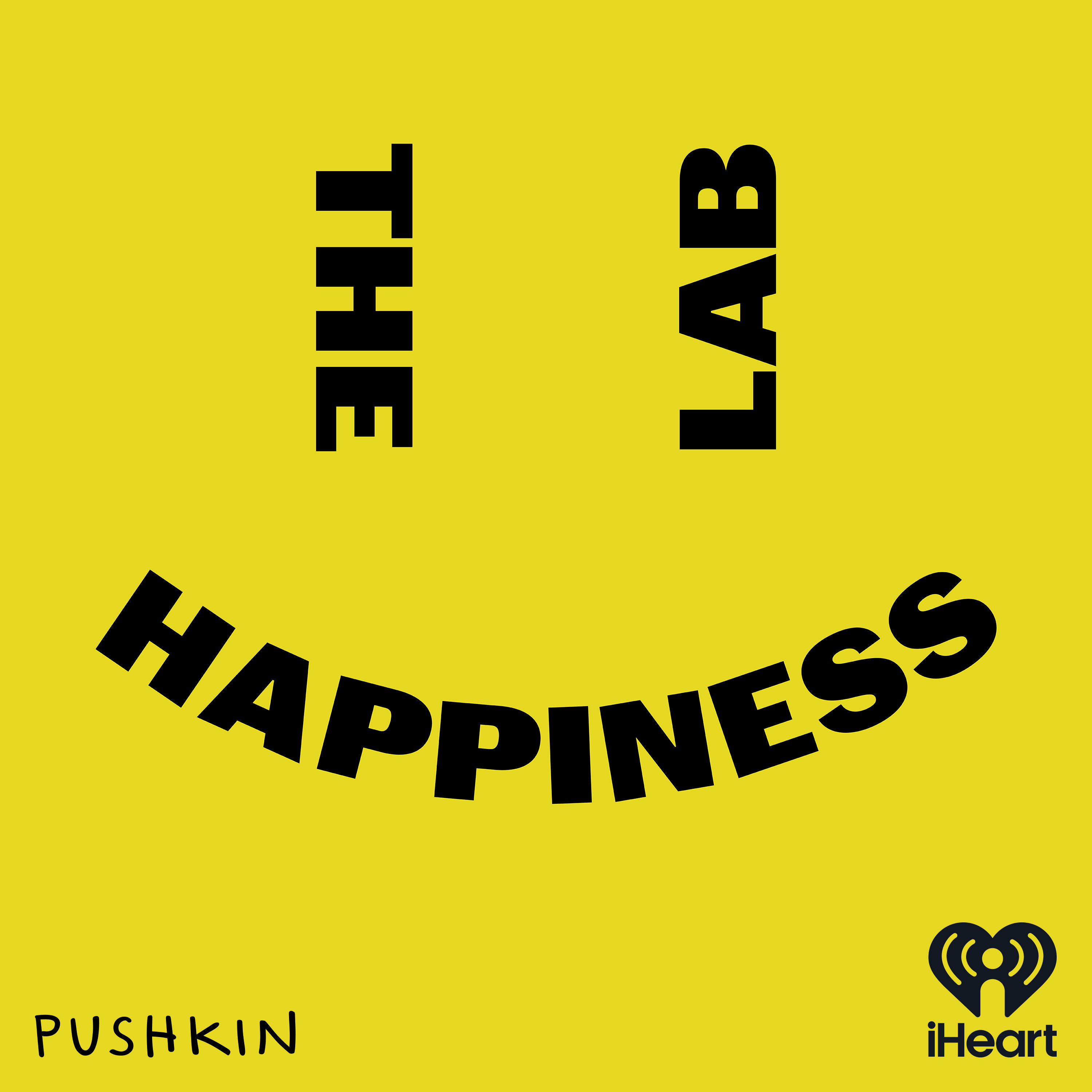
Tracks for the Journey
Tracks for the Journey will improve your well-being with practical insight and inspiration from progressive Christian spirituality, positive psychology, and justice ethics. Your host is Dr. Larry Payne, a minister, chaplain, and counselor with more than 45 years experience helping people with discoveries on their journey of life. He believes well-being is founded on balanced self-awareness, quality relationships, and active spirituality. Access all the resources of the Network at www.tracksforthejourney.com.
Tracks for the Journey
Big Love in a Vast Universe
Newsletter subscription
Subscribe to this podcast for a monthly bonus episode plus the TRACKS EXPRESS weekly newsletter with more resources for well-being!
Enjoy the Youtube Channel at https://www.youtube.com/@tracksforthejourney77
In the interest of transparency, let me admit as I start this podcast that I have always been interested in outer space. Maybe it came from growing up in the 1960’s, when America’s space program blasted rockets and heroes off the pad constantly. I sat with my parents to watch Armstrong take one giant leap. I had a telescope set up in the backyard to gaze at the stars. My aunt Bonnie bought me books on science for Christmas. I’ll admit to you that I’m actively tracking the spacecraft Perseverance on the way to Mars right now. So, you will not be surprised to hear that I am captivated today by some amazing science. And I’m working to integrate this with God as I understood the Divine from that little backyard in Missouri so many decades ago. In all this vast universe of space and time, what about me, you, and God?
Three thousand years ago, a Hebrew poet sang the song we know today as Psalm 8. He asked, in modern language, “I look up at your macro-skies, dark and enormous, your handmade sky-jewelry, Moon and stars mounted in their settings. Then I look at my micro-self and wonder, ‘Why do you bother with us? Why take a second look our way?’” (The Message Bible)
With today’s scientific knowledge, we ask this question with even more astonishment. Here are some facts:
The universe is big. Really big. Incomprehensibly big. The latest estimate says 70 billion trillion stars burn in our universe. That’s 70 with 23 zeroes, or more stars than there are grains of sand in all the deserts of earth. From one side to the other, the universe measures 540 sextillion miles (23 zeros). In relation to all this vast expanse, the size of our earth is like a single molecule floating in the air of our entire atmosphere.
The universe is 14 billion years old. Our planet is nearly 5 billion years old. That’s a lot of pages torn off the cosmic calendar. If you condensed the age of Earth to 365 days, the existence of the United States would appear in the last 1.5 second, and my puny life would come on the final one-tenth of a second on the final hour of the final day.
Human beings are numerous. The best estimate from the Population Reference Bureau is that 110 billion people have walked this planet in the past 50,000 years. Sadly, most lived only 10-12 years in the primitive conditions which prevailed. Picture it this way, if all 110 billion stood in a line back-to-back the line would go around the earth 1,665 times.
These vast numbers make our brains spin! As we spin our tiny brain cells in the vast universe, we are forced to ask: how big am I? How big is God?
This episode is entitled, “Vast.” The word “vast” means “immense, a very great quantity.” That certainly describes the space and time of the universe and the human race. The Bible says that God is present to all this vast universe. The ancient singer of the Psalms would have imagined the stars he could see were pasted on the inside of a huge bowl that moved around the earth. God lived above that bowl in the heavens. Occasionally, God would come down to earth. We’ve come a long way in our scientific understanding since then. Progressive Christian theology believes our theology needs adjusting in light of our modern knowledge. God is not “up there” someplace, or even stationed in a Heaven that is at the center of the Milky Way. God is present for every atom, person, and galaxy. As Psalm 139 says, quite rightly, “Is there anyplace I can go to avoid your Spirit, to be out of your sight?” The theological term is “panentheism,” meaning that God is present in all things, and all things are present in God. The Divine is truly omnipresent with every sub-atomic particle, human being, and supergiant star, creating and evolving throughout the universe. I think of this when I hear someone pray, “God be with us today as we travel.” To be correct with the biblical truth, wherever you are, or wherever you go, God is already Present! God and the universe are not in separate places but together. How big is your God? Our faith should stretch to believe a God who is present across 540 sextillion miles and 14 billion years!
That may seem impossible, yet actually, our imagination is already stretched large by the physical universe. You know that the molecules of your body are made up of elements that came from the stars, existing for billions of years. Or think of how our bodies are unknowingly being penetrated by electromagnetic waves which originate billions of miles away. Your life-giving breath in this moment is made possible by tiny cells carrying molecules of oxygen in your bloodstream. When I take a moment to think of all this, I am close to imagining the God who pervades it all with creative power.
A more difficult question is: how big am I? As one person among 110 billion, how can I count for anything? Do I have any value? I’m not the smartest, or tallest--just an ordinary person. Who will even remember me in 100 years? The truth is, most of us don’t know the name of our great grandfather. Like him, I’ll be forgotten, too, in just a few years. Opening the Bible again, we find the Hebrews felt this in 1000 BC. One sage wrote, life is “nothing but smoke. The smart and the stupid both disappear out of sight. In a day or two they’re both forgotten. Yes, both the smart and the stupid die, and that’s it. I hate life.” (Eccl 2:16-17). Pretty harsh words, don’t you think?
A similar thought comes from the French philosopher Pascal over 300 years ago, “When I consider the short duration of my life, swallowed up in an eternity before and after, the little space I fill engulfed in the infinite immensity of spaces whereof I know nothing, and which know nothing of me, I am terrified. The eternal silence of these infinite spaces frightens me.”
The question arises as to whether we should feel this way. I exist, and you exist. Is my existence significant in this vast universe?
We can turn to philosophers for help in thinking about the different ways we measure value and significance. Nick Hughes of Oxford has an excellent resource that was published by the online magazine “Psyche” that I’ve adapted in this podcast. He says one scale is called “Causal Significance.” Measured by the Milky Way, I don’t have causal significance. I have no effect on the planets revolving around the sun, nor do I cause a photon to carry a beautiful color from the summer flowers in my yard. But I do have quite a causal effect on the existence of my four children, right?
Another measure is “Intrinsic Significance.” My 165 lbs of bone and flesh has no intrinsic significance at all to the mass of the Earth. But the consciousness in my body which can make a choice about what my body can do is significant in itself, as when I decide to help my neighbor when his house is on fire.
Philosopher Simon Blackburn says that the most important question about our value is to ask, “To whom?” In other words, my value is partially found because I am valuable to other beings. This is called “Subjective or Relational Significance.” You are valuable to your family. If you are a parent, you have produced human beings who will carry the future. That child may have a life-hindering disability, but to her parent, she is wonderful. You are valuable to your community, perhaps to care for a needy neighbor, or vote for a better leader. Your presence can inject meaning, love and worth in the life of someone, who can influence another, who touches some other, until a chain of meaning is created that stretches far beyond the small beginning. Your actions can have Instrumental Significance to create a beneficial result across the world.
I believe the foundational meaning of life comes because we have Subjective Significance to the greatest being, that is, to God. In this spiritual perspective, God’s nature is Love, and this has granted us a sacred and significant value. The Bible has so many assurances of every person being loved by God, “We love because God first loved us.” (1 John 4:19) Each of the 110 billion who have lived have been under God’s loving care, able to commune with the Divine. There has never been a person just like you, nor will one ever exist. Another witness of God’s self-giving love is displayed in the life, ministry and resurrection of Jesus. We are so significant that God suffers with us. The Divine invests loving energy to bring us toward love, meaning and the good, even beyond our brief earthly lifespan. As the Apostle Paul wrote, “I am convinced that nothing in all creation will be able to separate us from the love of God in Christ Jesus our Lord.” (Romans 8:38-39)
As we consider our original question, what is really so vast as to be beyond comprehension? Is it 70 sextillion stars, or 14 billion years, or 110 billion humans? Actually, all of these are dwarfed by God’s loving presence and action throughout this universe, including little creatures like you and me. We are significant, just the right size to be one of God’s beloved children. This truth is vast, beyond our understanding. In this we find the foundation for well-being.
Tracks for the Journey is produced at the Bright Star Studio. All rights reserved.
Music from conamedia and A. Vahala on Pixabay.com
CITED
https://www.prb.org/resources/distilled-demographics-how-many-people-have-ever-lived-on-earth/
Nick Hughes, "Do we matter in the universe?" https://aeon.co/essays/just-a-recent-blip-in-the-cosmos-are-humans-insignificant



